- News
- Reviews
- Bikes
- Accessories
- Accessories - misc
- Computer mounts
- Bags
- Bar ends
- Bike bags & cases
- Bottle cages
- Bottles
- Cameras
- Car racks
- Child seats
- Computers
- Glasses
- GPS units
- Helmets
- Lights - front
- Lights - rear
- Lights - sets
- Locks
- Mirrors
- Mudguards
- Racks
- Pumps & CO2 inflators
- Puncture kits
- Reflectives
- Smart watches
- Stands and racks
- Trailers
- Clothing
- Components
- Bar tape & grips
- Bottom brackets
- Brake & gear cables
- Brake & STI levers
- Brake pads & spares
- Brakes
- Cassettes & freewheels
- Chains
- Chainsets & chainrings
- Derailleurs - front
- Derailleurs - rear
- Forks
- Gear levers & shifters
- Groupsets
- Handlebars & extensions
- Headsets
- Hubs
- Inner tubes
- Pedals
- Quick releases & skewers
- Saddles
- Seatposts
- Stems
- Wheels
- Tyres
- Health, fitness and nutrition
- Tools and workshop
- Miscellaneous
- Cross country mountain bikes
- Tubeless valves
- Buyers Guides
- Features
- Forum
- Recommends
- Podcast
review
 2024 Fizik One-to-One custom 3D-printed saddle - 1.jpg
2024 Fizik One-to-One custom 3D-printed saddle - 1.jpg£499.00
VERDICT:
The future is here but it'll cost ya! A genuine game-changer
Very comfortable
Quick and stress-free process
Can also recommend saddle shape
Only two locations offering the service in the UK
Price
Weight:
220g
Contact:

This product has been selected to feature in road.cc recommends. That means it's not just scored well, but we think it stands out as special. Go to road.cc recommends
At road.cc every product is thoroughly tested for as long as it takes to get a proper insight into how well it works. Our reviewers are experienced cyclists that we trust to be objective. While we strive to ensure that opinions expressed are backed up by facts, reviews are by their nature an informed opinion, not a definitive verdict. We don't intentionally try to break anything (except locks) but we do try to look for weak points in any design. The overall score is not just an average of the other scores: it reflects both a product's function and value – with value determined by how a product compares with items of similar spec, quality, and price.
What the road.cc scores meanGood scores are more common than bad, because fortunately good products are more common than bad.
- Exceptional
- Excellent
- Very Good
- Good
- Quite good
- Average
- Not so good
- Poor
- Bad
- Appalling
The Fizik One-to-One programme is a glimpse into what the future of bike saddles might look like. It's not an off-the-peg, one-size-fits-all approach but rather a saddle that is mapped to your body. Yes, it's expensive, and no, it's not necessary for everyone, but it has resulted in the most comfortable saddle I've ridden, and the first to take advantage of the real benefits of 3D printing.
> Book your One-to-One session for £500 with Fizik now
Can't afford the £500 ticket? Check out our guide to the best bike saddles instead…
In 1878 John Boultbee Brooks decided that rather than wait for the invention of pneumatic tyres to make his bike more comfortable, he'd copy the saddle off his horse and make one out of leather. This leather and steel combo turned out to be a rather solid idea, and remained the go-to for most saddles of the 20th century.
Come 1990, though, pro riders wanted something lighter, and lighter they got: Selle Italia came out with the Flite, which weighed just 230g; it really did change the game with titanium rails and a synthetic upper.
Progress didn't stop there, though, and while brands and riders alike bickered about how wide, long and light a bike saddle should be, I think we have to skip to 2020 to get to the next big milestone in bike saddle evolution.
3D printing
It was just four and a bit years ago that we were first introduced to 3D-printed saddles, such as the Fizik Antares Versus Evo 00 and Specialized S-Works Power with Mirror technology. The premise was clear: you could now tailor every millimetre of saddle to the exact density you wanted.
I've dished out a lot of praise for 3D-printed saddles over the past few years and have had many happy miles on a Fizik Vento Argo R3 Adaptive, but this latest innovation appears – from the outside at least – to unlock the true potential of 3D printing: customisation.
Speaking to Fizik, it sounds like all the tech to make this possible has existed since the first 3D-printed saddles rolled off the production line; the tricky bit has been working out how best to translate an individual's rear end into a saddle that actually works for them.
Fizik has settled on having authorised dealers where you can go to get your 'personal pressure profile' mapped as you ride under the guidance of an expert, at the moment there are just two locations in the UK and we headed to the Phil Burt innovation centre in Manchester to see what all the fuss was about.
The session (which is included in the price) covers a rudimentary bike fit (there's no point getting a custom saddle if you're in completely the wrong place), and over the course of about an hour, I was shown all of my pressure peaks, imbalances and instability from the results of sitting on a pressure pad over my current saddle.
As I mentioned, I find my current saddle pretty comfortable but am aware that I have a dominant side. I also sit quite far forward on it and prefer to ride on the hoods even when getting aero. All of this was taken into account and inputted into the Fizik One-to-One app.
Interestingly, the app came back recommending that I should be on an Aliante saddles rather than the short-nosed Vento Argo that I came in with. Like many people, I arrived at this saddle shape purely by trial and error, so it was extremely interesting to have data suggesting that I would be even comfier elsewhere.
Ten days later the postman delivered a saddle-shaped box and inside lay my very own custom 3D-printed saddle; there's not one in the world that is the same!
To be honest, the One-to-One saddle looks and feels the same as the mainstream Adaptive saddles from a distance; the only tell-tell signs are the small purple band around the rails, the 00196 printed at the rear, and the fact that if you run your fingers down the upper you'll soon notice that in some places it's more squidgy on one side than the other.
This final differentiator is pretty key; to the best of my knowledge, every other saddle on the market is symmetrical and yet our bodies quite simply aren't.
The saddle that I was recommended was a custom 3D-printed Aliante R3 with Kium rails, but the One-to-One range is not limited to just this shape or construction. Fizik offers the One-to-One service on a wide range of its popular saddle shapes and widths, including the Arione, Argo, Antares and gravel-specific saddles both with Kium or carbon rails.
I've been using the saddle for a good few weeks, long enough to determine that this is categorically the most comfortable saddle I've ever used. I mean, at this price you would kind of hope so...
With the saddle shape change from Argo to Aliante I can't accredit the improvement entirely to the custom 3D printing. I can, however, accredit the improvement to the One-to-One process as otherwise I would have no doubt still been riding around (quite happily) on the less-than-optimum saddle.
Value and conclusion
So, would I recommend it? Well, £500 is undeniably a shedload of cash to spend on any part of your bike and seems particularly painful for a saddle. I'm not too sure why, though, as many of us wouldn't think twice about dropping that much cash on an OSPW system or a 100g-lighter frame, both of which will have a far smaller impact on your riding performance and, indeed, comfort.
I'm not for a moment suggesting that this saddle is for everyone, or in fact necessary, but to put the price into perspective, the off-the-shelf Tempo Aliante R3 Adaptive saddle has an RRP of £259. And plenty of 3D-printed saddles we've tested recently are even more than that – the Prologo Nago R4 and Selle Italia SLR Boost saddles cost £349.99 and £409.99 respectively.
> How to avoid saddle pain and get comfortable on the bike
For me, spending an extra £100 or even £200 to have a saddle that is tailored to me rather than the masses, and the peace of mind that I'm buying the correct saddle shape without having to try a bucketload, is well worth it.
> How to make your bike more comfortable – check out our 14 tips
I haven't yet had the chance to take up the offer of the follow-up fit session (also included in the price) to re-map my personal pressure profile atop the new custom saddle, but I have little doubt that there will be a significant improvement.
As for durability, the construction and manufacturing appear to be identical to Fizik's current Adaptive range, saddles that I've happily used for years on end and covered tens of thousands of miles on without issue. I have no reason to doubt that this custom one won't be equally durable, but will keep you updated.
If you're serious about getting comfortable on the bike then getting the right saddle is a must. Maybe you're already on it, but if you're not then this seems like a pretty foolproof way of making sure you are. Bravo Fizik, the future is now, and other brands I'm sure will be rushing to catch up.
> Book your One-to-One session for £500 with Fizik now
Verdict
The future is here but it'll cost ya! A genuine game-changer
road.cc test report
Make and model: Fizik One-to-One custom 3D-printed saddle
Size tested: 140mm
Tell us what the product is for and who it's aimed at. What do the manufacturers say about it? How does that compare to your own feelings about it?
Fizik says: "Introducing a shift in the paradigm of personal comfort and performance: One-to-One by Fizik, our revolutionary new program for designing, building, and delivering one-of-a-kind custom saddles based on you and your unique riding needs." I think that this is the innovation that 3D printed saddles have been begging for! It's well executed and easy to recommend.
Tell us some more about the technical aspects of the product?
My saddle:
Aliante R3
140mm width
Kium rails
Rate the product for quality of construction:
9/10
Rate the product for performance:
9/10
Rate the product for durability:
9/10
Rate the product for weight (if applicable)
8/10
Carbon railed version would be lighter
Rate the product for comfort (if applicable)
10/10
Rate the product for value:
5/10
A hard one to judge... it costs a fortune but I've spent hundreds trying to find the right saddle so wish this service existed sooner!
Tell us how the product performed overall when used for its designed purpose
Very well; it's very comfortable, the shape is bang on for me (as you'd hope) and it appears durable.
Tell us what you particularly liked about the product
It's the most comfortable saddle that I've used.
Tell us what you particularly disliked about the product
There are currently only two authorised dealers in the country so be prepared to travel.
How does the price compare to that of similar products in the market, including ones recently tested on road.cc?
As mentioned in the review, there's not really anything else like this on the market. Compared with other 3D printed saddles it is expensive, but you get a lot more for the money.
Did you enjoy using the product? Yes
Would you consider buying the product? Yes
Would you recommend the product to a friend? Yes
Use this box to explain your overall score
It's excellent, a genuine game-changer that, although expensive, offers so much more than the only slightly cheaper alternatives.
About the tester
Age: 23
I usually ride: Specialized venge pro 2019 My best bike is:
I've been riding for: Under 5 years I ride: Every day I would class myself as: Expert
I regularly do the following types of riding: road racing, time trialling, cyclo cross, commuting, club rides, sportives, general fitness riding, mtb,
Jamie has been riding bikes since a tender age but really caught the bug for racing and reviewing whilst studying towards a master's in Mechanical engineering at Swansea University. Having graduated, he decided he really quite liked working with bikes and is now a full-time addition to the road.cc team. When not writing about tech news or working on the Youtube channel, you can still find him racing local crits trying to cling on to his cat 2 licence...and missing every break going...
Latest Comments
- dh700 3 sec ago
That's just the cops trying to cover for their "brother", to whatever extent that they can. Recall that the initial police "investigation"...
- HLaB 6 min 42 sec ago
More confusing clutter I think it would be better if folk just learnt to drive. Most folk manage it, it's just a handful of eejits who don't
- slc 16 min 40 sec ago
I don't personally agree with the protesters, but they are not idiots. They are not convinced by the arguments for an LTN, but those arguments are...
- 60kg lean keen climbing machine 31 min 8 sec ago
Just got back from my local recycle and reuse place to buy a bike for my granddaugher, £5 it cost Me, they have lots of bikes. The palce does well,...
- Pedal those squares 37 min 42 sec ago
I thought if things got that bad the rear cassette could crack open a bottle!
- mdavidford 1 hour 29 min ago
Most of those people aren't cycling as sport, though, which is the relevant outcome for BC's purposes....
- Jamie Williams 1 hour 52 min ago
Not sure how that snuck in! Now changed :)
- SpeedingSloth 2 hours 48 min ago
Can Death by Dangerous Driving be upgraded to just 'Manslaughter' as well please? Oh wait, Tory speaking against the car-lobby... never ever gonna...
- Secret_squirrel 3 hours 14 min ago
Interesting review - especially around the dials. ...
- Hirsute 4 hours 30 min ago
Will be debated on 31 March https://petition.parliament.uk/petitions/707189



















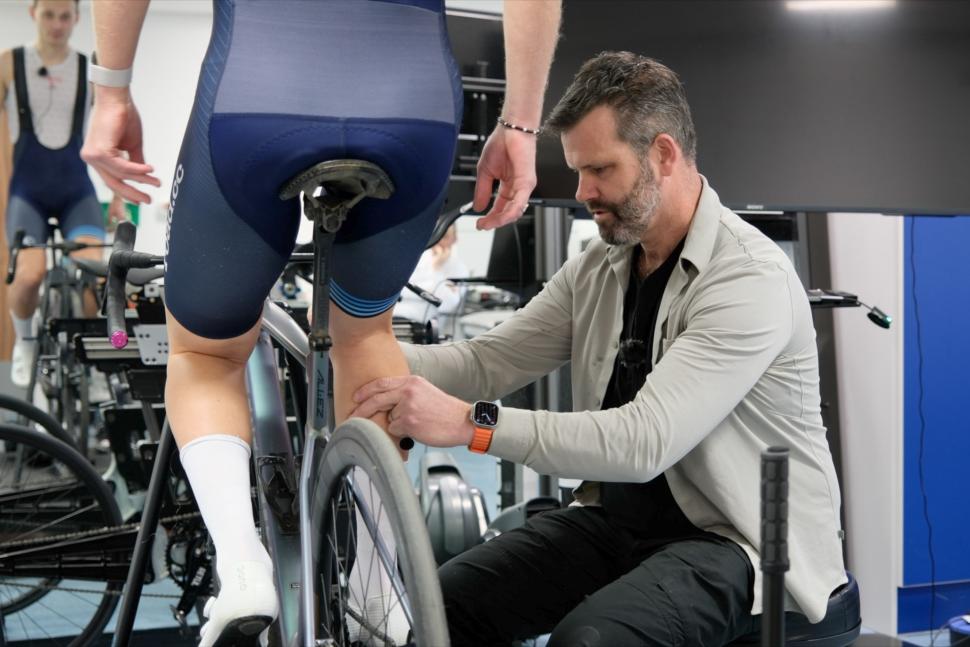


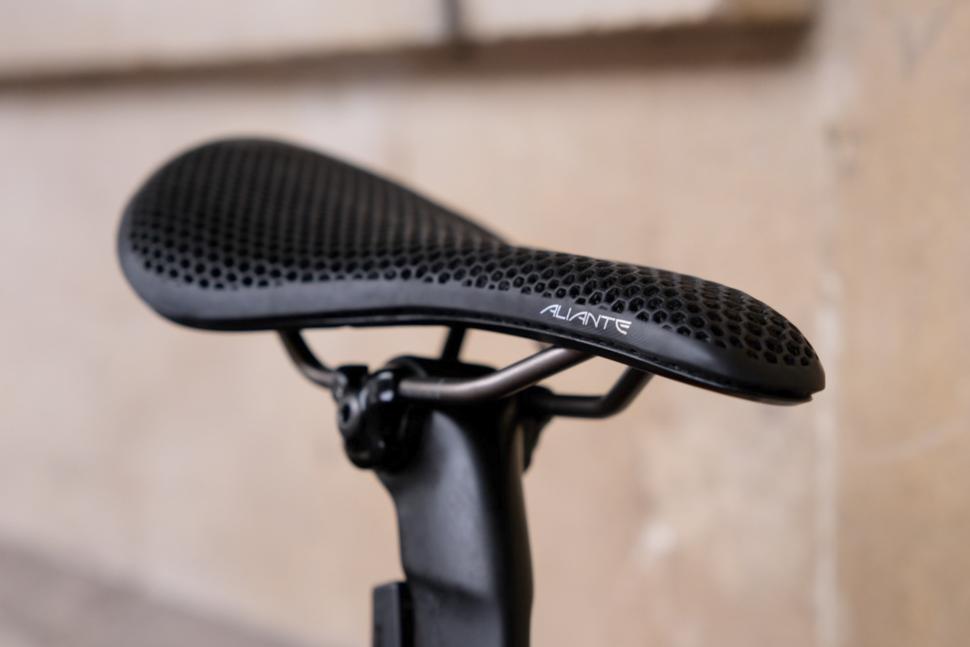
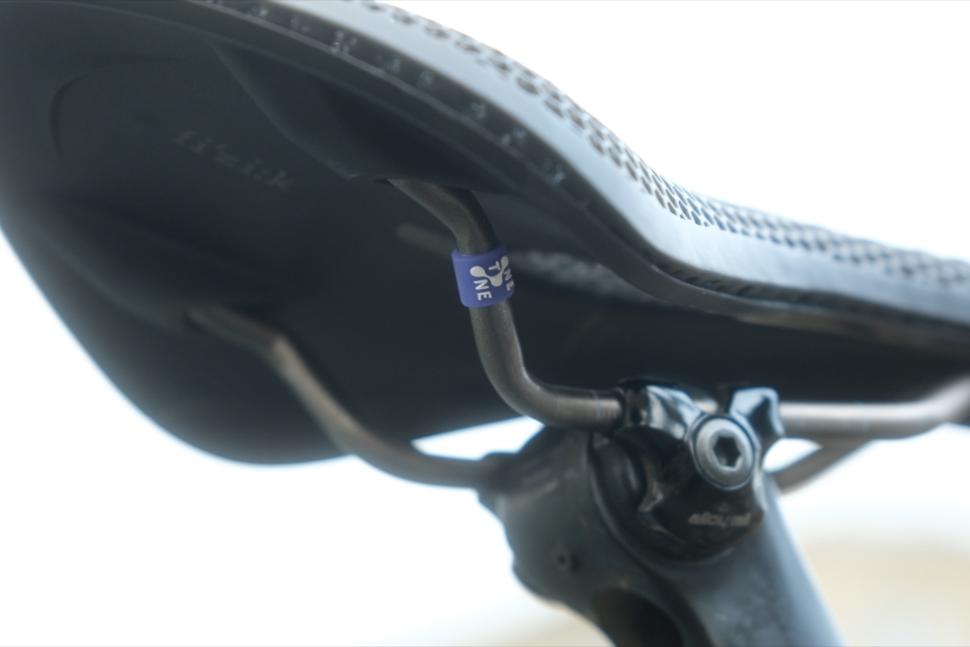
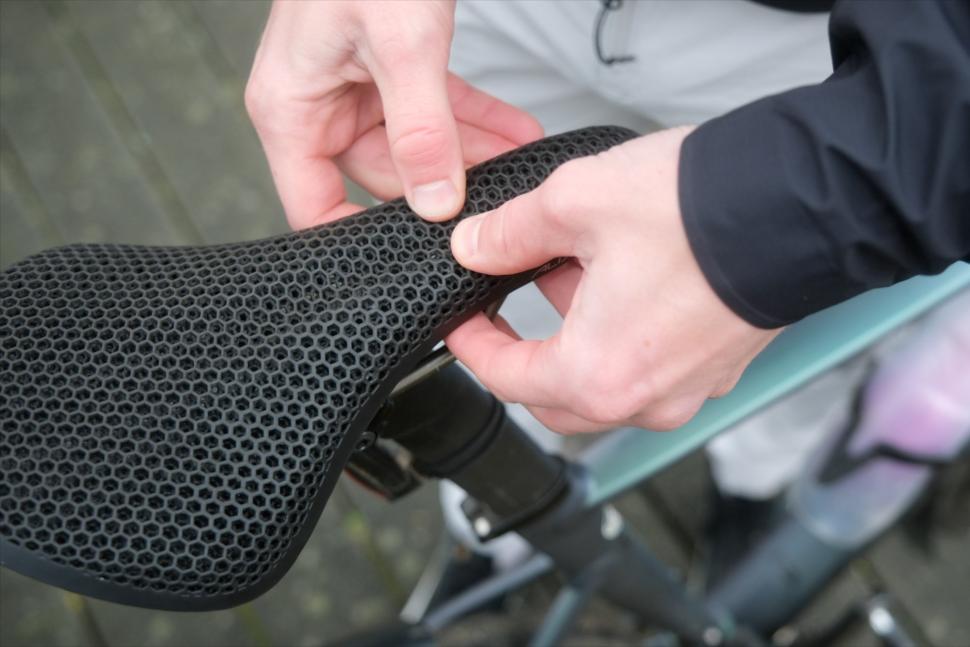
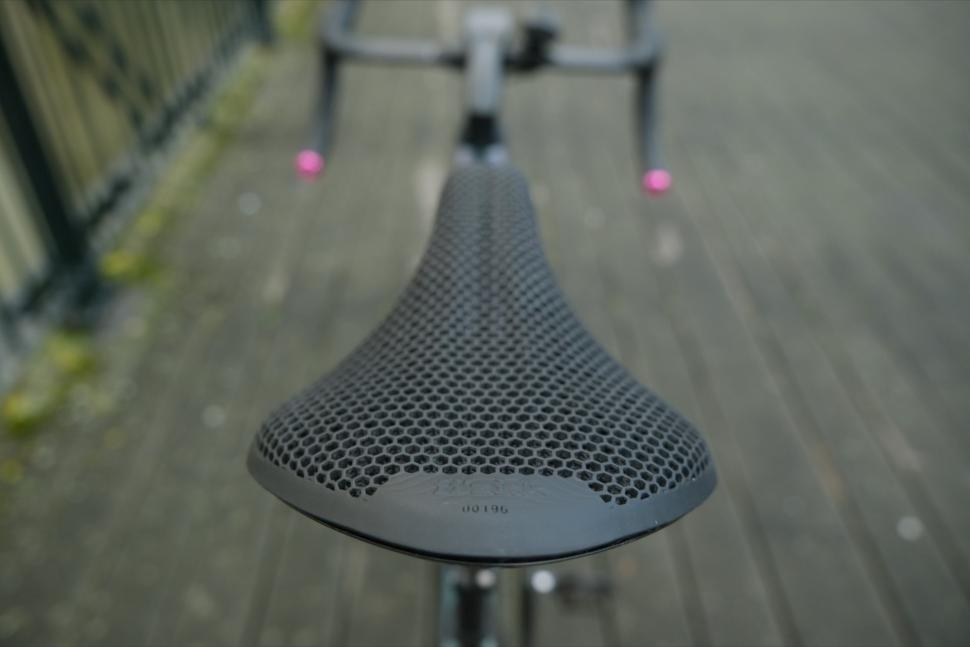
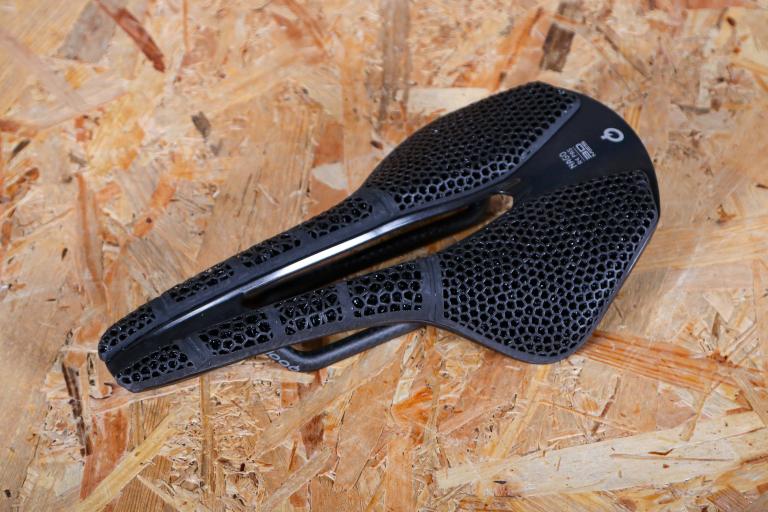
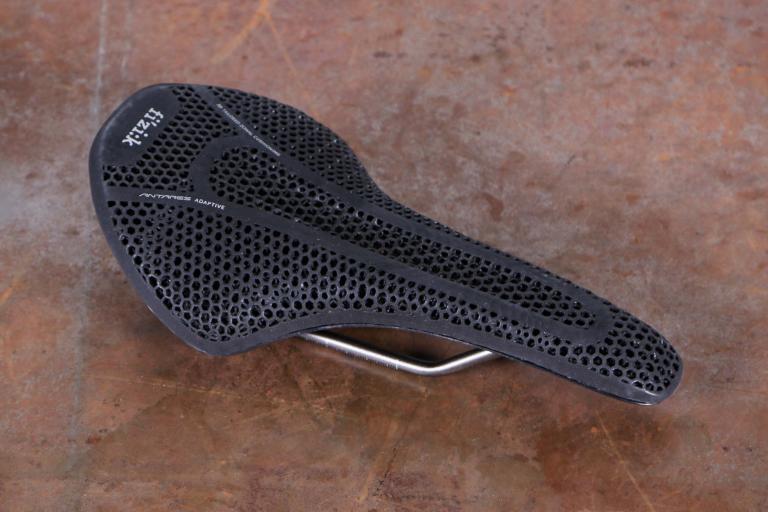
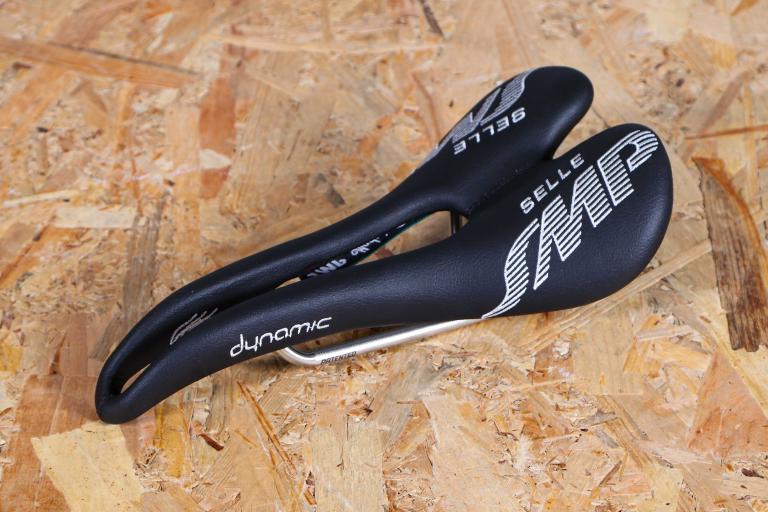
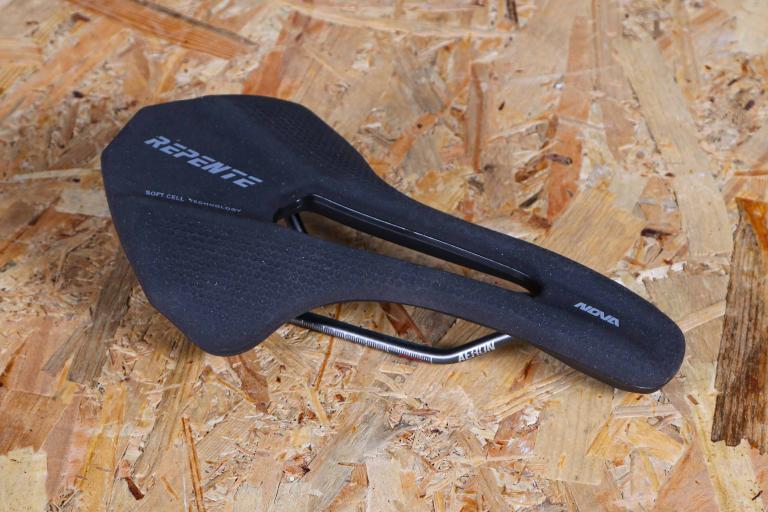
Add new comment
31 comments
Jamie, I'm guessing that this is now your saddle, unique like, please tell us how long it takes to die, how the feeling changes and if your are going to spend your own hard earned to buy a new one?
It is indeed, I will be using it until its demise - I kind of feel that I was fortunate to find a saddle that worked for me fairly quickly (and without too much expense) so although it is comfier the benefits are limited. For mates that have spent a fortune on saddles that aren't working for them (and have a sensible fit) then I will be recommending this service
If every arse is unique, how do they know which saddle will be "right" for an arse they have never seen before?
it can only be some form of algorithm predicting what might work for you, and presumably based on feedback of some sort from users- but based on what data?
this does all sound rather bullshittish to me, if you think about it.
Read it again. You seem to have missed what this is all about.
Old news. The Reform saddle has been available for a couple of years. It's very popular with owners and a fair bit cheaper https://shop.cyclefit.co.uk/collections/reform-custom-saddles
https://www.cyclist.co.uk/reviews/reform-seymour-mouldable-saddle-review
Actually there's a big difference. This maps saddle densities to adjust pressure. The Reform heat moulds a solid saddle to the shape of your backside as you cycle during setup. I had a Reform and it was rock hard and possibly the most uncomfortable saddle I've used. I've not tried this one but using 3d printing to vary the foam densities seems like a far more comfortable option. Gave the Reform away. It was that bad (for me - may be fantastic for others obviously).
Will you be getting a Fizik? It sounds promising.
The problem with all this "future of cycling" stuff, is that as the future progresses everything gets much more expensive. $500 for a single saddle is a joke, unless you're racing, or $500 to you is just pocket change.
Now Continental introduced the Aero 111 Tubeless Road Tire, the way of the future in road tires, and it cost $121, but it will be lucky if it lasts 4000 miles, but Conti's key snakeoil word is..."fast" and people buy it base on that word. What's nuts is the average budget car tire cost less than that Conti tire, will last 10 times longer and has a lot more material and technology in it than a bicycle tire!
The "future of cycling" is the future of scamming cyclists more and more out of their hard earned money, all the while making huge profits on snakeoil products. You all can sneeze on me all you want, but if you on line you discover that tire companies that make both car and bicycle tires, percentage wise of sales, makes a lot more profit with selling bicycle tires vs automotive tires. That should have been obvious to a thinking person.
Yes it's all very expensive. However, the article seems to suggest you get the saddle. a fit with Phil Burt, and possibly a check later - which if you think of the cost of a fit or the cost of making a few saddle purchase errors ( ahem ) it's actually not too bad.
The only saddle that my backside has failed to get on with is a light brown Brooks Swift- probably steel rails. It's still at home, mounted on the carbon seat post which I bought to reduce the pain. Another 10,000 miles might have done it. Otherwise, I've managed well on all sorts of cheap and not-so-cheap plastic saddles.
I've got a Brooks B17 on my new bike and it's the most comfortable saddle I've owned
I could almost stomach that cost compared to the amount of money I've spent experimenting with saddles on my bikes. Even taking in to account being able to sell them on, you could argue that what I've finally settled on (excuse the pun) probably hasn't cost me much less than £500...
But I've learned a lot about fit in the process and can more or less now guess the adjustments I need to make for a specific discomfort, which is useful for swapping bikes or saddles or changing position.
Having said that, I've still not found the sweet spot for my Aliante R3 😂 Too much nose down and the raised tail just pushes my weight onto the handlebars. Too much nose up and obviously I fet pressure forwards of the perineum. It's like the curve is just a bit too steep at either end.
Average wage of a person in the UK is.37,430 Under 3% earn more than 70K. Honest question to Roadcc editorial: Why to you promote this? The result is to make our sport a smige more elitist with each 'gamechanger' headline. All other saddles now pointless? I wonder will this help get the reviewer a Cat 1 licence?...Agreed.
I take the point, but road.cc periodically surveys its readership on income, bike spend etc. I suspect the answers indicate there is an audience for this sort of product, even if it's not all of us (and it's not me). Also, I still occasionally read magazines about supercars (I know, sorry, old habits) but I'm never going to buy one.
There are ridiculous priced items often here, to the point anything I see here seems overpriced. I ride a cheap bike but the saddle is one that could easily be on a top end bike (ok it is the most heavyweight version).
If I rode an expensive 2000+ quid bike, I wouldn't mind paying such a price. However having riden a fizik, and being something like a medieval torture device, I doubt its comfort.
Some of us like to look at the ridiculously expensive stuff even if we've got no desire (or funds) to buy one. It highlights the latest trends and often mistaken ideas and if you're not happy with Road.cc reviewing expensive stuff, then you don't have to read it.
I'm not sure I agree they are 'promoting' this. It is a review, so unless you're suggesting the reviewer is biased towards Fizik, then it isn't a promotion. As for cost, I actually think it doesn't represent particularly bad value, for the reasons others have stated. By your logic, bike websites should only ever review or report on products that are affordable to someone on the UK's average wage. Maybe that would make you happy, but I suspect it would get boring pretty quickly. Most people like reading and learning about aspirational products, and more often than not, new or innovative design will carry a corresponding price tag. The reality is then that the successful innovations will trickle down, meaning a much wider range of people can enjoy them.
Considering the holes in the saddle, how do you keep them clean?
It's entirely self-cleaning. Ride for a while, and eventually the sweaty butt-juice fills up the holes and rinces them as it overflows, running down your seat-post into your frame, then gathering in your BB where you can extract it and use it as cheese.
Looking at the photographs, I don't *think* what you get is an undercarriage equivalent of an optical prescription. I imagine the authorised dealers only let you use it on a fiz:ik saddle and probably don't let you keep the heatmap (in the same way wedding photographers would never sell you the negatives back in the day).
Which is a shame, because it doesn't seem too much of a leap from here, technology-wise, to being able to email a file to someone with the right printer and a supply of basic saddle rails so that a new uber-comfortable saddle can be sent to you relatively cheaply every time you need one after you've paid once for the arse-mapping.
That was my thought exactly, surely a business opportunity for someone to set up fitting centres in major city centre bike shops and just sell the arse print file for £100 with option to have the saddle printed on-site for another £100? A big retailer like Decathlon could do very nicely offering this as an optional extra with its bikes, one would imagine.
I'm sure that sort of thing will come sooner or later. But presumably a key ingredient (and why you'd turn to a big brand like Fizik) is knowing exactly how to use the arse-print to produce a saddle that is actually optimum for that arse. Others will figure it out eventually, but they're not there yet.
That is a great idea. And surely someone will call them Arsegos.
That's a good question holtyboy. I'd like to know if you can buy a second saddle for another bike, and if so, given that it wouldn't need a fit and scan, how much that would cost.
Although thinking about it, a second bike (e.g. endurance/winter bike) would have a different geometry and therefore a fit/scan would still be required...
I have tried to find out before without success if adaptive printed saddles last for much longer than normal saddles? If they did last a lifetime, say, the cost could be viewed in a different way.
I bought two of the Specialized S-works ones and they aren't wearing very well. Both have developed several V shaped ridges towards the nose end. They are still very comforatble and you don't notice the ridges but wonder if it's a matter of time before the front ridges start cracking. Both ridden for approx 5-8000 miles.
I've done towards the upper end of that range on a Selle Italia SLR Boost 3D Kit Carbonio Superflow and it seems to be holding up pretty well.
If they did last a lifetime, say, the cost could be viewed in a different way
Life experience tells us they won't
If they save the file, you should be able to get a new one printed for a lot less cost and hassle than the first one.
In theory, but presumably it's like bike fits, and they recommend repeat visits as your body changes over time...
Pages